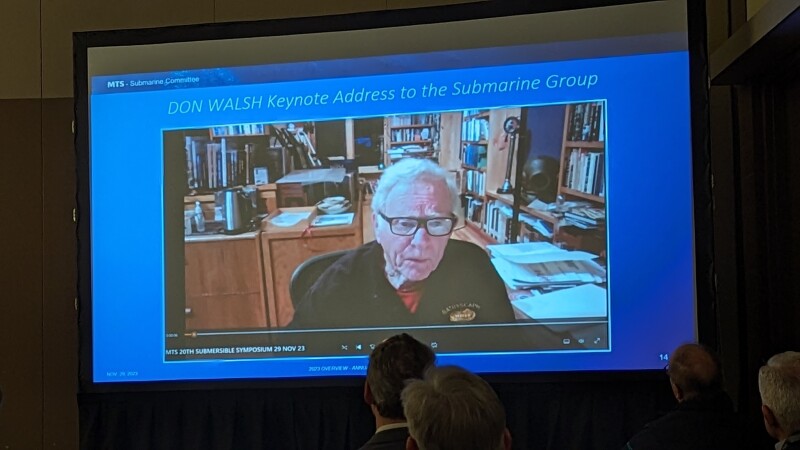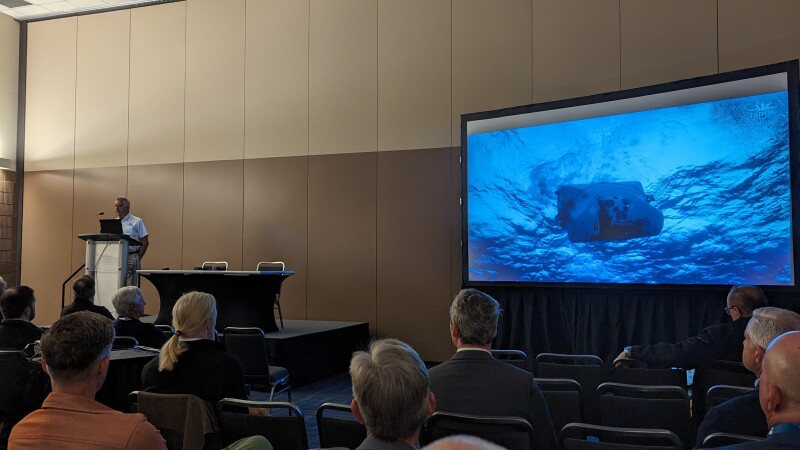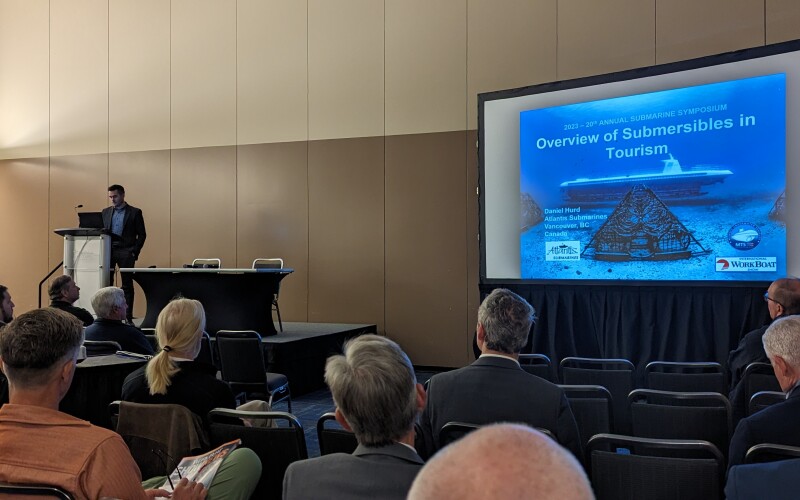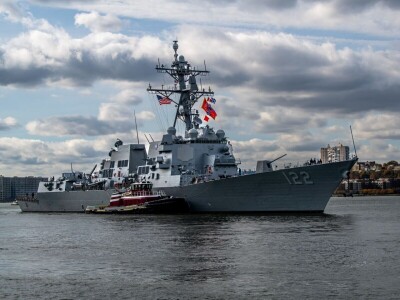Underwater Intervention's (UI) history stretches back to 1993 when the first version of the event was held in San Diego. However, its legacy goes back further.
This legacy, as well as the entire UI community, is connected to people like “The Unsinkable” Don Walsh and deep-ocean explorer Phil Nuytten, each of whom had a passion for underwater that they began pioneering in the 1960s.
Both men were honored as part of the "60 Years of Safe Diving Operations" keynote discussion that opened the UI program at the annual International WorkBoat Show (IWBS) that opened Wednesday and runs through tomorrow.
Moderated by William Kohnen, president and CEO of Hydrospace Group Inc., the session featured several presenters who outlined where things are in various subsets of the underwater industry.
Kohnen highlighted the contributions that Walsh and Nuytten made over the decades, which was especially poignant since both passed away in 2023.

Bruce Strickrott, group manager and lead submersible pilot at the Woods Hole Oceanographic Institution, provided an overview of the research sector submersible activity from 2022 through 2023, with updates about sub activity from all over the world.
Projects in the works for 2024 include a microplastics study in the Canary Islands and a survey of the El Hiero volcano. He also provided an update for ALVIN, which visited the Titanic shipwreck in 1986 and upgraded for deeper operations.
“ALVIN has 128 dives as of October of this year, and there are 110 dives planned for next year,” Strickrott said.
Patrick Lahey, co-founder and CEO of Triton Submarines, outlined some new sub technology like the TRITON 660 AVA, which enables entertainment-focused underwater experiences on a whole new level.
“All of it is a testament to what’s possible today,” Lahey said. “These are machines that we couldn’t even have imagined 20 or even 10 years ago.”

Ofer Ketter, president of SubMerge, Costa Rica company that describes itself as experts on private personal submarine expeditions, and ROV services dedicated to underwater exploration and adventure.
Ketter discussed the four major sectors where submersibles are being used -- private yachts, expedition travel companies, tourism, and for scientific/conservation.
“Manned deep ocean exploration is stronger than ever,” Ketter said. “The interest has always been there and we’re exploring what audiences of all types are wanting to support.”
Daniel Hurd, operations manager for Atlantis Submarines, which operates nine tourist submarines at seven sites in the Caribbean and Pacific, outlined the operational impacts that everything from the pandemic to recent wildfires have had on the industry. He also highlighted several tourist operations currently taking place around the world, from Vietnam to Egypt to Jamaica.
“There’s a lot of movement in this world, with plenty of ups and down,” Hurd said. “It’s a labor of love, but we’re here because we have a passion for this industry.”
The session wrapped with an update on submarine escape and rescue systems from Curt Cunningham of Global Submarine Rescue. He provided details around what those operations look like in the U.S., Australia, India, Korea, Japan, and Singapore.
All of the presentations highlighted the present and future of the submarine industry, but each made a direct connection to the legacy that Don Walsh and Phil Nuytten represent. Walsh was able to record a message for the audience just before his passing. His approach and focus on safety have defined an industry that has enabled millions of safe dives. While tragedies force everyone to look in the mirror, he highlighted how individuals and the entire industry can do so in a way that provides a path forward.
“Go luck and good dives,” Walsh told the crowd.





